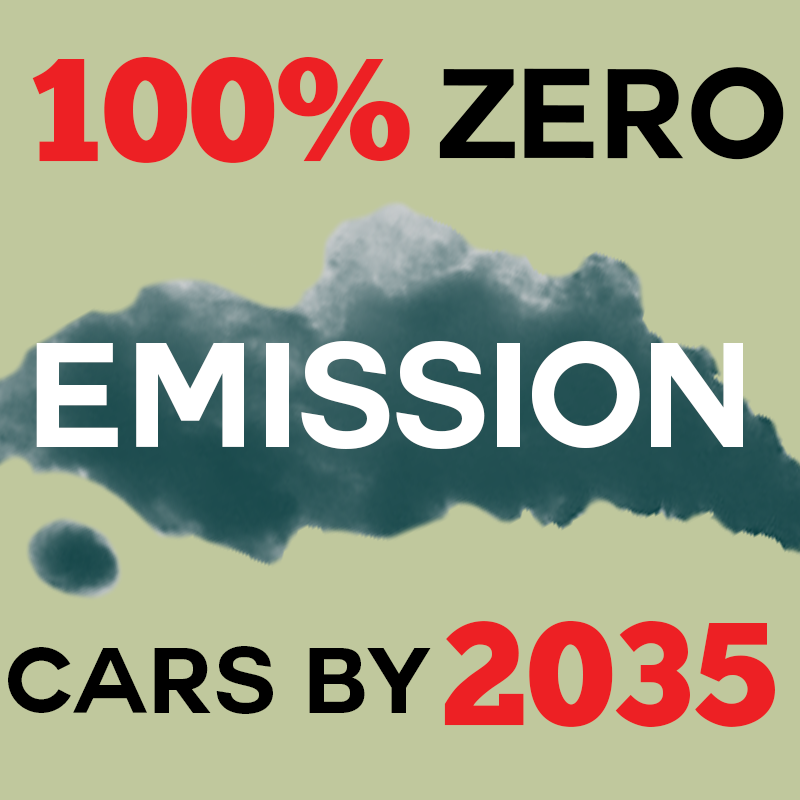No Gas Emissions after 2035
March 16, 2021
On September 23, 2020, California Governor Gavin Newsom signed an executive order that bans the sale of new fossil fuel-powered vehicles, including cars and trucks, by 2035. All new vehicles, including heavy-duty vehicles used for commercial transportation and other critical infrastructure, will be required to adopt the policy by 2045. While California has always been an advocate for clean air regulations, this regulation is monumental as California becomes the first state in the United States to forbid the sales of all fossil fuel-burning vehicles.
Many countries, especially France and Germany, do more to combat climate change than California. However, in the United States, a country where climate change has been historically downplayed, California has been spearheading the effort to reduce climate change with some of the most robust regulations in the country. It was the first state to pass a law regulating economy-wide greenhouse gas emissions in 2006. In 2002, it ordered automakers to reduce vehicle emissions by 30% by 2016. Abhimanyu Jayaraman, a junior at Cupertino High School and State Advocacy Lead at the Silicon Valley Youth Climate Action Summit, believes that California’s recognition as a global leader in climate change allows them to set a precedent for the world. Further, after former California Governor Jerry Brown signed an executive order to commit to 100% renewable energy sources for electricity by 2045 in 2018, California has also substantially increased its investment in renewable energy and pioneering technologies. California’s climate investments through grants, incentives, developments, and projects surpassed 2 billion dollars in 2019, hitting a new milestone.
However, there have been many obstacles towards California’s goal towards 100% clean energy, including irate Californian companies suing the orders’ legality and the Trump Administration undermining their efforts. Once passing the law to reduce vehicle emissions by 30%, California was sued by prominent automakers. Further, in December 2015, 195 countries, including the United States, pledged to reduce global warming by signing the momentous Paris Agreement. However, on June 1, 2017, President Trump withdrew from the agreement citing “an unfair economic burden imposed on American(s),” a blow to the already slow environmental progress. Today, Californians are affected by the ravaging wildfires, pollution, droughts, coastal threats, and heatwaves, all of which are detrimental to public health. Trump’s denial of climate change was demonstrated when California officials met with him to discuss their concerns. He vigorously advocated his beliefs when California Natural Resource Secretary, Wade Crowfoot, desired the President to acknowledge that forest management is not the sole cause of wildfires on September 14, 2020. By mentioning, “It’ll start getting cooler, you just watch … I don’t think science knows actually,” and ”vowing” to cut emergency funding to pacify the wildfires, he has demonstrated how an administration’s disbelief of global warming and climate change can hinder the progress of California’s environmental goals.
While California has committed to reducing its greenhouse gas emissions to below 1990 levels by 2030, little has been done. However, California Governor Gavin Newsom’s order to ban the sale of new fossil fuel-powered vehicles is remarkable as it is projected to reduce greenhouse gas emissions by over forty percent. Other states will likely follow suit as California is a role model for other states regarding climate change. Further, large automakers, producing cars in the millions like Honda and Toyota, will be forced to make electric vehicles for California. According to Abhimanyu, because the California market is a significant player, large automakers will be forced to sell electric cars worldwide with this ban.




